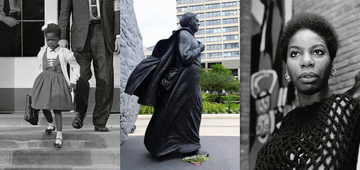Ahead of the festive season, the Royal Society for Public Health (RSPH) has published a report today revealing what young people see as the normalisation of gambling in video games. This is due to the growth in gambling-like features such as loot boxes and skin betting.
Based on research funded by GambleAware exploring gambling amongst young people across Great Britain aged between 11 and 24, Skins in the Game identifies that a majority of young people see both purchasing a loot box (58%) and taking part in skin betting (60%) as forms of highly addictive gambling. In this report, RSPH is calling upon the new Government to introduce legislation to classify loot boxes and skin betting as legally-recognised forms of gambling.
Loot boxes, which are purchased by two in five (40%) of young gamers, are items embedded within games, containing randomised rewards which are uncertain at the point of purchase. These can be cosmetic, such as ‘skins’ that change the appearance of an in-game character, or provide users with an advantage in gameplay.
- Over half of young people (55%) believe that playing a mobile or video game could lead to a young person gambling
- Over half (54%) of young people see the relationship between gambling and gaming as a negative one for young people
- One in seven (14%) of those who have taken part in gambling-related activity on games, paid for the activity using their own credit card, their parent’s card, or with money borrowed from a friend or family member, with one in ten (11%) taking part in gambling-like activity on games because they did not want to have a worse character or team than their friends
The global loot box market is estimated to be worth £20 billion, with the UK market alone valued at £700 million – with games containing these at the top of many children and young people’s Christmas lists.
RSPH is calling for:
- A commitment from the gaming industry to ensure gamble-free video and mobile games for under 18s and the development of a set of criteria and the technology required to identify disordered spending on loot boxes and gambling-like content in games
- A broader definition of gambling and gambling-like activity to be included in the Health Education Curriculum and introduced to young people at primary school
- The development of education programmes helping parents, carers and teachers to be able to support young people around gambling harms
- The recognition of gambling harms as an important issue for Mental Health Support Teams in schools and colleges
Skins in the Game also highlights concern surrounding the normalisation of gambling in football, with research revealing two in five (41%) 11-16 year olds are exposed to gambling sponsorship on TV or radio at least once a month.
The report calls for:
- Introduction of legislation preventing gambling operators from acting as title sponsors for sports clubs
- Imposition of contractual requirements preventing sports professionals from endorsing gambling-related activity
Shirley Cramer CBE, Chief Executive of the Royal Society for Public Health, said:
“Young people have told us that gambling and gambling-like activity are slowly but surely polluting hobbies and past-times that have traditionally been beneficial to their wellbeing.
Today, the vast majority of young people take part regularly in video-gaming and no doubt many will receive video games as Christmas presents. However we, and the young people we’ve spoken to are concerned at how firmly embedded gambling-type features are in many of these games. The rise of loot boxes and skin betting have seen young people introduced to the same mechanisms that underpin gambling, through an industry that operates unchecked and unregulated on the back alleys of the internet, which young people can access from their bedrooms.
As with any public health issue, this is one that requires a combination of measures focusing on both education and regulation. Young people are not universally opposed to gambling and gambling-like activity; they simply want to be able to recognise where it appears in their lives and to make an informed decision as to whether to avoid it altogether, or to participate in a way that lowers the stakes for their health and wellbeing.
Read the full Skins in the Game report here.
Watch the supporting film here.
Find out more information on the focus groups and surveys conducted as part of this research here.



